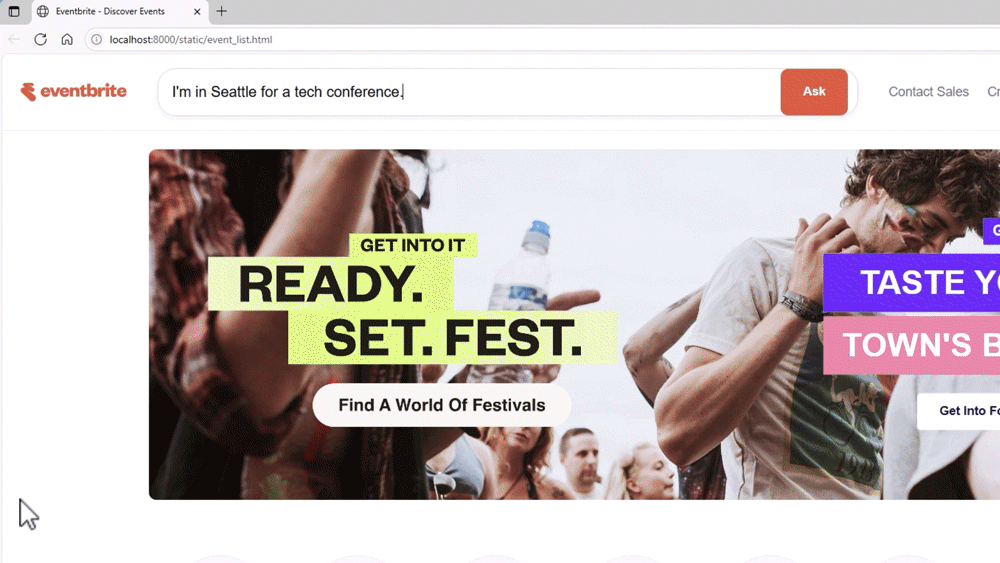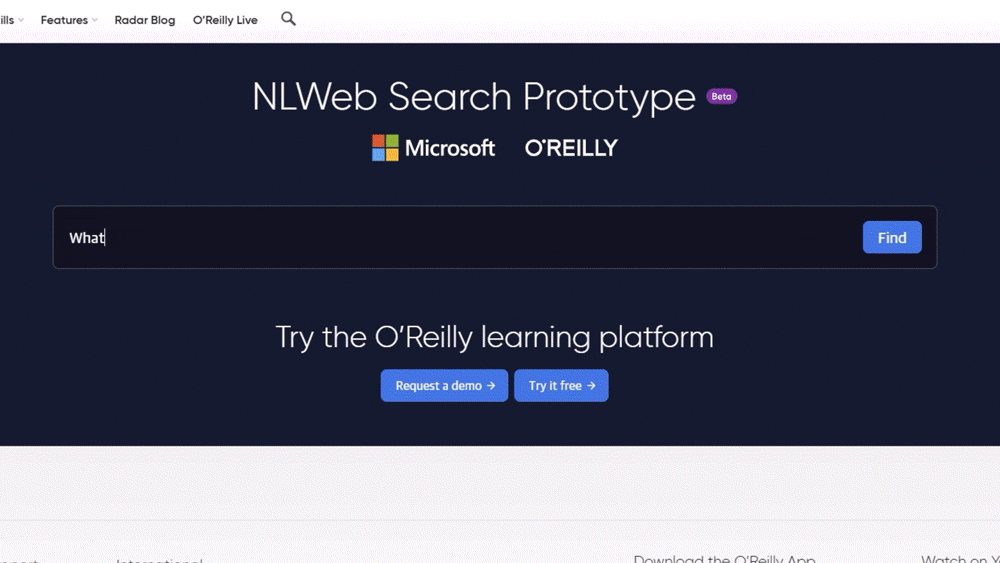AI Summary
Microsoft has launched NLWeb, an open project that aims to transform websites into conversational AI platforms, allowing users to interact with site content through natural language queries instead of traditional navigation. Leveraging existing web standards like Schema.org and RSS, NLWeb functions as a Model Context Protocol (MCP) server, making content accessible to both humans and AI agents, thus preparing websites for the "agentic web."
Microsoft has unveiled
NLWeb, an open project designed to transform ordinary websites into conversational AI platforms. This new technology promises to make creating natural language interfaces for websites as straightforward as publishing HTML pages was in the early days of the internet.
NLWeb (Natural Language Web) provides website owners with tools to create AI-powered interfaces that allow visitors to interact with site content through natural language queries. Rather than navigating through menus or using search boxes with keywords, users can simply ask questions and receive direct answers based on the site's content.
The technology builds upon existing web standards that many sites already use, particularly Schema.org and RSS feeds. These semi-structured formats have been widely adopted across over 100 million websites and serve as both syndication mechanisms and semantic layers for content.
What makes NLWeb particularly interesting is that it functions as a Model Context Protocol (MCP) server, enabling websites to make their content accessible not just to human visitors but also to AI agents. This dual functionality positions websites to participate in what some are calling the "agentic web" — an emerging internet landscape where AI agents can discover, access, and interact with site content on behalf of users.
Why It Matters Now
The timing of NLWeb's release coincides with a significant shift in how people access information online. As more users grow accustomed to interacting with AI assistants like ChatGPT, Claude, and Microsoft's own Copilot, expectations for how we should be able to interact with websites have changed.
R.V. Guha, who recently joined Microsoft as CVP and Technical Fellow and is credited with creating NLWeb, has a track record of developing transformative web standards. As the creator of RSS, RDF, and Schema.org, Guha has repeatedly demonstrated an ability to build foundational technologies that reshape the internet. Now at Microsoft, his focus has turned to addressing the growing disconnect between AI-powered search interfaces and traditional website navigation.
How NLWeb Actually Works
Behind the scenes, NLWeb combines several technologies to deliver its conversational capabilities:
- It leverages existing structured data formats like Schema.org that websites already use to organize their content.
- The system enhances this structured data by incorporating external knowledge from underlying large language models (LLMs), adding contextual richness to responses.
- NLWeb maintains platform neutrality, supporting all major operating systems and allowing developers to choose components that best suit their needs, including various LLMs and vector databases like Qdrant, Snowflake, Milvus, and Azure AI Search.
A key design principle for NLWeb is its lightweight architecture. The system can run on infrastructure ranging from cloud clusters to laptops and soon even phones, making it accessible to publishers of all sizes.
Microsoft describes NLWeb not as a definitive solution but as a foundation upon which the community can build. The company has released proof-of-concept demonstrations showing one possible implementation approach but expects and encourages developers to create diverse, innovative implementations.
This philosophy mirrors the evolution of the web itself, from basic HTTP servers to today's sophisticated data center infrastructures — all unified by shared protocols enabling seamless communication.
Early Adopters and Ecosystem Partners
Microsoft has already collaborated with several prominent organizations to test and refine NLWeb. The initial cohort of publishing and ecosystem partners includes media companies (Chicago Public Media, Hearst's Delish), content platforms (Allrecipes, Serious Eats, Tripadvisor), tech infrastructure providers (Inception Labs, Milvus, Qdrant, Snowflake), and e-commerce platforms (Shopify).
This diverse group of early adopters suggests NLWeb is being positioned for wide-ranging applications across various website categories.
What This Means for Web Publishers
For website owners and publishers, NLWeb presents several potential benefits:
- It allows them to offer AI-powered experiences directly on their sites rather than losing visitor engagement to external AI platforms.
- The technology works with existing structured data formats that many sites already implement, potentially lowering the adoption barrier.
- Web publishers maintain control over their AI implementations, choosing which models to use and how deeply to integrate conversational features.
As AI agents become more prevalent in how people access information, NLWeb-enabled sites can position themselves to be discoverable and accessible in this emerging ecosystem.
What's Next for NLWeb
NLWeb's release reflects a larger vision of AI enhancing "every web interaction." According to project materials, realizing this vision requires collaboration reminiscent of the web's early "barn raising" spirit, with shared protocols, sample implementations, and community participation.
By positioning NLWeb as part of the foundation for an "AI Web" — similar to how HTML revolutionized document sharing — Microsoft appears to be making a long-term strategic bet on how the internet will evolve.
As an open project still in its early stages, NLWeb's future development will likely be shaped by community adoption and contribution. Microsoft's GitHub repository provides starting points for running NLWeb on various platforms, with documentation for Azure implementations already available and support for GCP and AWS described as "coming soon."
Github:
https://github.com/microsoft/NLWebRecent Posts














